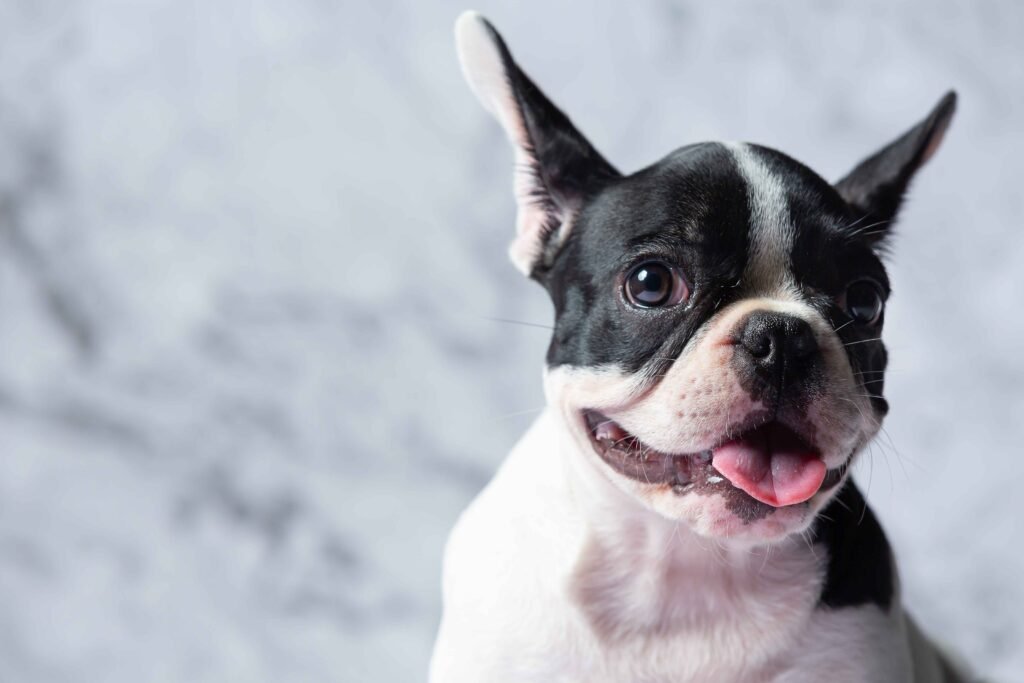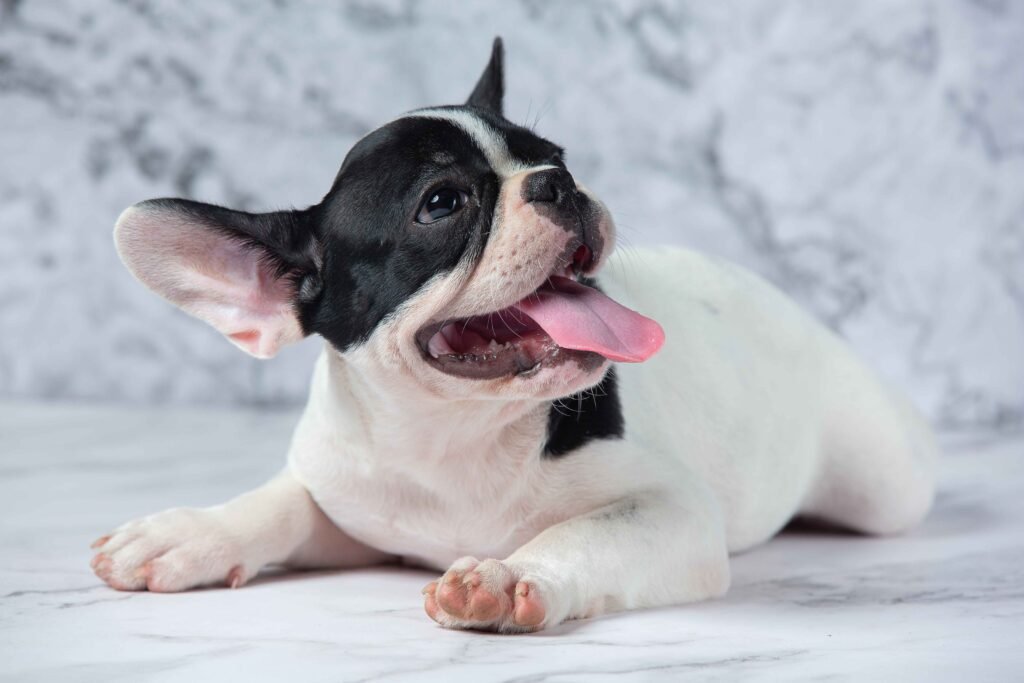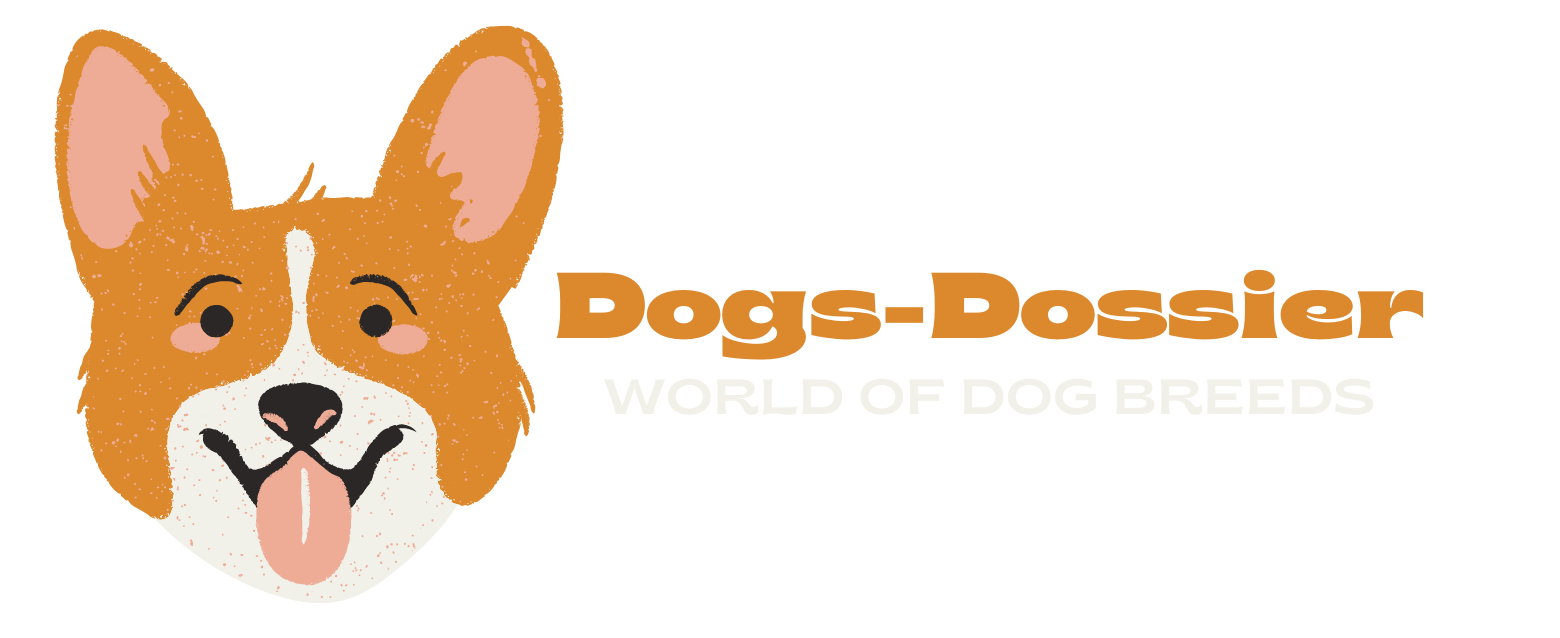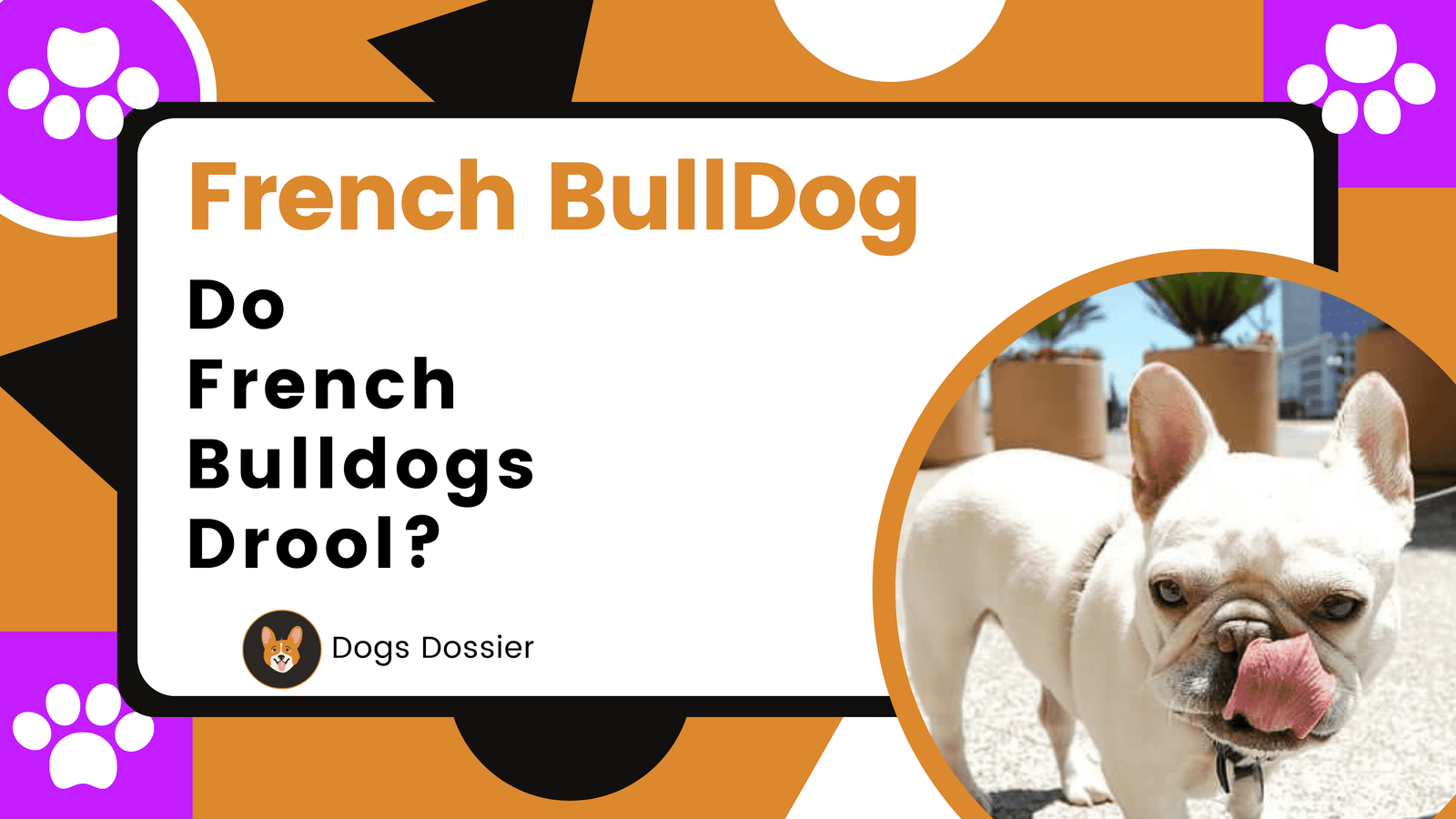Do French Bulldogs Drool? Everything You Need to Know About Drooling in French Bulldogs
French Bulldogs are beloved for their charming personalities and distinctive appearance, but one question that often arises among owners is whether these adorable companions drool.
In this article, we delve into the topic of French Bulldog drooling, exploring the causes behind it and providing practical tips for managing this common issue.
Understanding the Physiology of Drooling
Understanding the physiology of drooling in French Bulldogs involves recognizing the role of their unique facial structure and salivary glands.
Frenchies, characterized by their brachycephalic (short-faced) anatomy, have compact jaws and shorter muzzles, which can affect their ability to contain saliva effectively. As a result, saliva may escape more easily from the mouth, leading to occasional drooling.
Additionally, French Bulldogs have well-developed salivary glands that produce saliva in response to various stimuli, such as the presence of food or excitement.
Owners should be aware of their Frenchie’s breed-specific characteristics and understand that occasional drooling is a normal part of their physiology, especially after eating or during moments of excitement.

Do French Bulldogs Drool ?
Yes, French Bulldogs can drool, but they are not typically heavy droolers compared to some other breeds.
Their drooling tendencies may vary among individuals and can be influenced by factors such as genetics, oral health, and environmental conditions.
While occasional drooling is normal, excessive or persistent drooling may indicate underlying health issues that require veterinary attention.
Breed Characteristics and Drooling
Breed characteristics significantly influence drooling tendencies in French Bulldogs. While Frenchies are not typically heavy droolers compared to some other breeds, their brachycephalic (short-faced) anatomy can contribute to occasional drooling.
Due to their compact jaws and shorter muzzles, French Bulldogs may have difficulty containing saliva, especially when eating or drinking. Additionally, individual variations within the breed, such as genetics and age, can impact drooling tendencies.
While not all French Bulldogs drool excessively, owners should be aware that breed characteristics play a role in their pet’s propensity for drooling. Monitoring drooling patterns and understanding the breed’s unique traits can help owners recognize normal drooling versus signs of underlying health issues.
Causes of Excessive Drooling
Excessive drooling in French Bulldogs can stem from various underlying causes, warranting careful consideration by pet owners. Dental issues, such as gum disease, tooth decay, or oral infections, may lead to increased salivation as a protective mechanism or due to discomfort.
Moreover, oral injuries or foreign objects lodged in the mouth can trigger excessive drooling as a response to pain or irritation. Heat stress is another common cause, as Frenchies may drool excessively in hot weather to aid in thermoregulation.
Additionally, excitement, anxiety, or anticipation of food or play can stimulate saliva production, resulting in heightened drooling.
Underlying medical conditions, including respiratory infections, gastrointestinal problems, or neurological disorders, may also manifest as increased drooling in French Bulldogs, necessitating prompt veterinary evaluation and treatment.

Drooling and Oral Health
Drooling and oral health are closely intertwined aspects of a French Bulldog’s overall well-being. Maintaining good oral hygiene is crucial for preventing dental issues that can contribute to excessive drooling.
Tartar buildup, gum disease, and tooth decay can lead to discomfort and increased salivation as the body’s natural response to oral irritation. Regular brushing, dental cleanings, and professional examinations are essential for preserving oral health and minimizing drooling in Frenchies.
Additionally, addressing any oral health issues promptly can prevent secondary complications and ensure the pet’s comfort and quality of life. Owners should prioritize oral care as part of their Frenchie’s routine healthcare regimen to promote optimal dental health and reduce the risk of excessive drooling.
Environmental Factors
Environmental factors play a significant role in influencing drooling behavior in French Bulldogs. Heat and humidity are primary environmental triggers for increased salivation in dogs, including Frenchies. During hot weather, dogs may pant excessively to regulate their body temperature, resulting in heightened saliva production and drooling.
Additionally, high-stress environments or unfamiliar surroundings can provoke anxiety or nervousness in French Bulldogs, leading to excessive drooling as a physiological response to emotional distress. Conversely, comfortable and familiar environments can help alleviate stress and reduce drooling episodes.
Owners should be mindful of their Frenchie’s surroundings and take appropriate measures to ensure a conducive environment that promotes comfort and well-being, thereby minimizing environmental factors’ impact on drooling behavior.
Managing Drooling in French Bulldogs
Managing drooling in French Bulldogs involves a multifaceted approach aimed at addressing underlying causes and promoting the pet’s comfort and well-being. Maintaining good oral hygiene through regular brushing, dental cleanings, and professional examinations is essential for preventing dental issues that can contribute to excessive drooling.
Additionally, owners should monitor their Frenchie’s diet, opting for high-quality, easily digestible foods and avoiding highly fermentable ingredients that may exacerbate drooling. Providing a calm and stress-free environment, along with regular exercise and mental stimulation, can help reduce anxiety-induced drooling episodes.
Owners can also employ practical strategies such as using absorbent mats or bibs to manage drool and prevent messes. However, if drooling persists or is accompanied by other concerning symptoms, veterinary consultation is recommended to identify and address underlying health issues effectively.
By implementing these proactive measures, owners can effectively manage drooling in their French Bulldogs and promote their overall health and well-being.
When to Consult a Veterinarian?
Knowing when to consult a veterinarian is crucial for addressing concerns related to drooling in French Bulldogs.
If drooling becomes persistent, excessive, or is accompanied by other concerning symptoms such as lethargy, vomiting, diarrhea, changes in appetite, or noticeable discomfort, prompt veterinary evaluation is warranted.
Additionally, if drooling persists despite home management strategies or if there are any signs of oral discomfort or injury, seeking professional veterinary advice is essential.
Early veterinary intervention can help identify and address underlying health issues contributing to excessive drooling and ensure timely treatment to alleviate discomfort and promote the pet’s well-being. Owners should trust their instincts and prioritize their Frenchie’s health by seeking veterinary attention whenever drooling behavior raises concerns or deviates from the pet’s normal patterns.

FAQs: French Bulldogs
Do all French Bulldogs drool?
While drooling tendencies can vary among individual French Bulldogs, the breed as a whole is not known for excessive drooling compared to some other breeds. However, some factors such as genetics, oral health, and environmental conditions may influence drooling in Frenchies.
What are the common causes of excessive drooling in French Bulldogs?
Excessive drooling in French Bulldogs can be caused by various factors, including dental issues, oral health problems, heat stress, excitement, anxiety, or underlying medical conditions.
Is drooling in French Bulldogs always a sign of a health problem?
Not necessarily. Occasional drooling in French Bulldogs, especially after eating or drinking, may be normal. However, persistent or excessive drooling, especially if accompanied by other symptoms such as lethargy or changes in appetite, may indicate an underlying health issue that requires veterinary attention.
How can I manage drooling in my French Bulldog?
Managing drooling in French Bulldogs involves maintaining good oral hygiene, providing a balanced diet, and ensuring regular exercise to reduce stress and anxiety.
When should I consult a veterinarian about my French Bulldog’s drooling?
If your French Bulldog’s drooling becomes persistent, excessive, or is accompanied by other concerning symptoms such as vomiting, diarrhea, or changes in behavior, it’s essential to seek veterinary advice promptly.
Conclusion
While French Bulldogs may experience occasional drooling due to their breed characteristics and environmental factors, proactive management and regular veterinary care can help minimize this issue and ensure their overall well-being.
By understanding the causes of drooling and implementing appropriate preventive measures, owners can enjoy a happy and healthy relationship with their beloved Frenchie companion.





